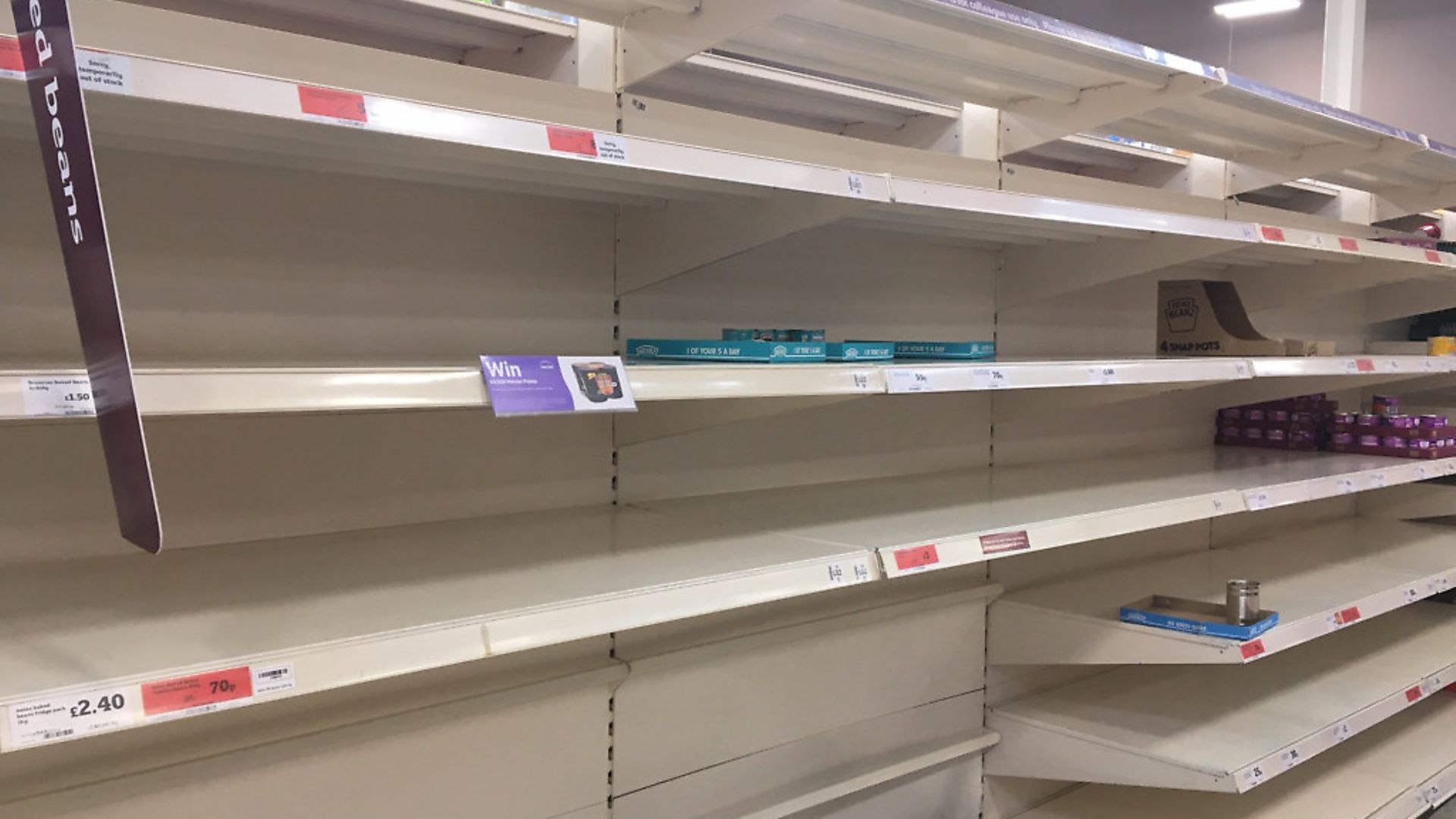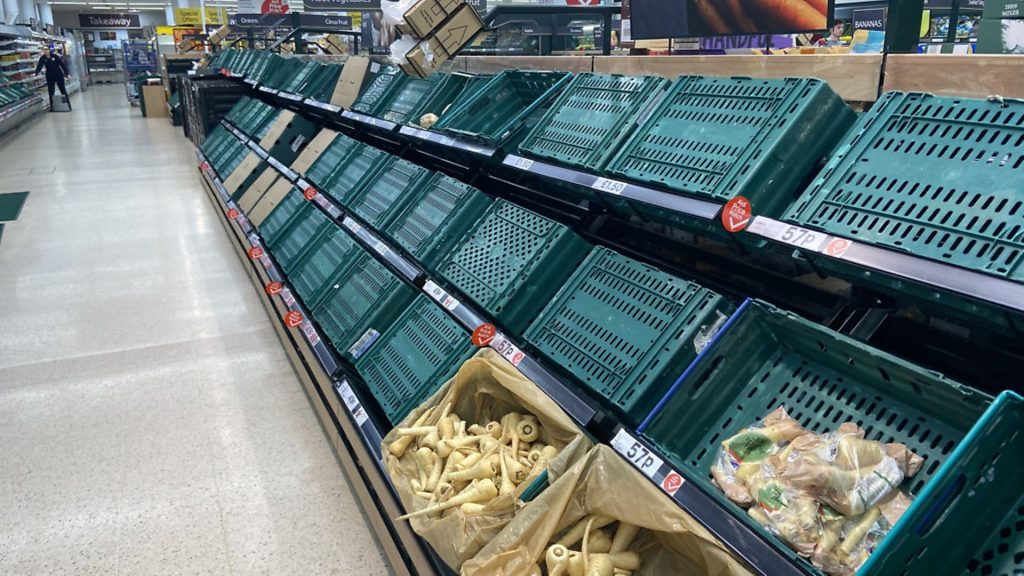
Supermarkets are playing a vital role in the current crisis. But so too – and with less fanfare – are local shops. Could the pandemic trigger a wider revival?

Go local. It’s a no-brainer. Why bother with any of the big supermarkets when my own Tyne Valley village has a well-stocked Spar and Post Office, a greengrocer, hairdresser, chemist and much more. Collectively they’re a safer bet than the half-empty shelves of Sainsbury’s four miles away. What’s more, the food is often fresher.
We’ve been going local for quite some time. OK, we’re the exception. But if this crisis has told us anything, it’s that habits will have to change – and that the potential for shopping and trading on the doorstep, with connections to local supply chains, is enormous.
Call it farm to table, bypassing the huge supermarket warehouses and avoiding the endless ‘food miles’ – grower to big buyer to distribution complex to supermarket to customer car and, hence, to fridge or freezer and then to table. That’s several hundred miles, countless gallons of diesel, umpteen tonnes of particulates pumped into the atmosphere.
Our tea, and coffee is delivered to us directly twice a month by a Tyneside institution, Ringtons (‘tea to your door and so much more’) which began with a horse and cart service way back in the last century – and has continued the tradition with a sizeable network of green vans. They deliver biscuits and cakes too. Then, of course, there’s a doorstep milk delivery in the wee small hours whenever we want it.
The shop, in short, has been coming to us for years. There’s endless possibilities. It is, after all, much greener for a retailer to send – say – an electric van to scores of homes in an area than for all its inhabitants to drive to the supermarket.
Think about this: a combination of local shops – in my case a few hundred yards from our house – and doorstep delivery is not only more carbon-friendly but has endless job-creation possibilities.
Expansion of this go-local concept is no longer a pipe dream. I’ve spent some time over the past year examining places pejoratively labelled ‘left-behind’. Some have managed to revive against seemingly overwhelming odds. Take the small Northumberland town of Wooler, near the Scottish border. It could have followed countless places: ignored by decision-makers, starved of essential services, seemingly forgotten.
But Wooler (‘Gateway to the Cheviots’) defied the odds through local endeavour. From modest beginnings in 1996, a local community trust has grown into a significant economic player, with capital assets of more than £3 million. Central to its operation is a large community hub, which incorporates the council library, small start-up business ‘pods’ , large meeting rooms and now a branch of Newcastle Building Society, which had made ‘going local’ its watchword – filling a void left by the departure of two banks. The trust owns high street shops, a hostel, and has delivered almost 20 affordable homes. And success breeds confidence: a malt whisky distillery is now being built by a local business family.
Wooler is not alone. The small town of Amble on the Northumberland coast, a former coal port, has also turned the tide. Remarkably, it’s become a destination town, partly with the help of EU regional funding. There’s a new harbour ‘village’, a renewed town square, lots of locally-owned shops, cafes and decent restaurants – overseen by a charitable community trust.
Around England, and Britain, ‘going local’ is going even further. Local food production can no longer be dismissed as ‘hobby farming’ but – literally – a growing economic force in some areas. It’s a throwback to the inter-war years when a government-inspired organisation, the Land Settlement Association, or LSA, provided hundreds of smallholdings throughout the country – at one stage delivering over half of England’s salad crops.
Could, then, the aftermath of this pandemic presage a re-ordering of our priorities and strengthen a ‘going local’ movement in farming, shopping and much else – not least a reassessment of employment itself as more opt to work from home? The possibilities are endless.









